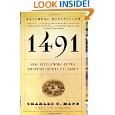Another reprint from Mormon Matters.
April 1986: President Benson presides over his first General Conference. Did anyone listening to his humble little talk, called “Cleaning the Inner Vessel,” realize that it would send ripples through the Church and start a massive change in Church policy and doctrine?
President Benson said:
Unless we read the Book of Mormon and give heed to its teachings, the Lord has stated in section 84 of the Doctrine and Covenants that the whole Church is under condemnation: “And this condemnation resteth upon the children of Zion, even all.” (D&C 84:56.) The Lord continues: “And they shall remain under this condemnation until they repent and remember the new covenant, even the Book of Mormon and the former commandments which I have given them, not only to say, but to do according to that which I have written.” (D&C 84:57.)
Now we not only need to say more about the Book of Mormon, but we need to do more with it. Why? The Lord answers: “That they may bring forth fruit meet for their Father’s kingdom; otherwise there remaineth a scourge and judgment to be poured out upon the children of Zion.” (D&C 84:58.) We have felt that scourge and judgment!
The Prophet Joseph said that “the Book of Mormon was the most correct of any book on earth, and the keystone of our religion, and a man would get nearer to God by abiding by its precepts, than any other book.” (Book of Mormon, Introduction.) The Book of Mormon has not been, nor is it yet, the center of our personal study, family teaching, preaching, and missionary work. Of this we must repent.
Only a teenager at the time, this is one of the few general conferences of which I remember well. Our family concentrated our family scripture reading on The Book of Mormon shortly thereafter.


